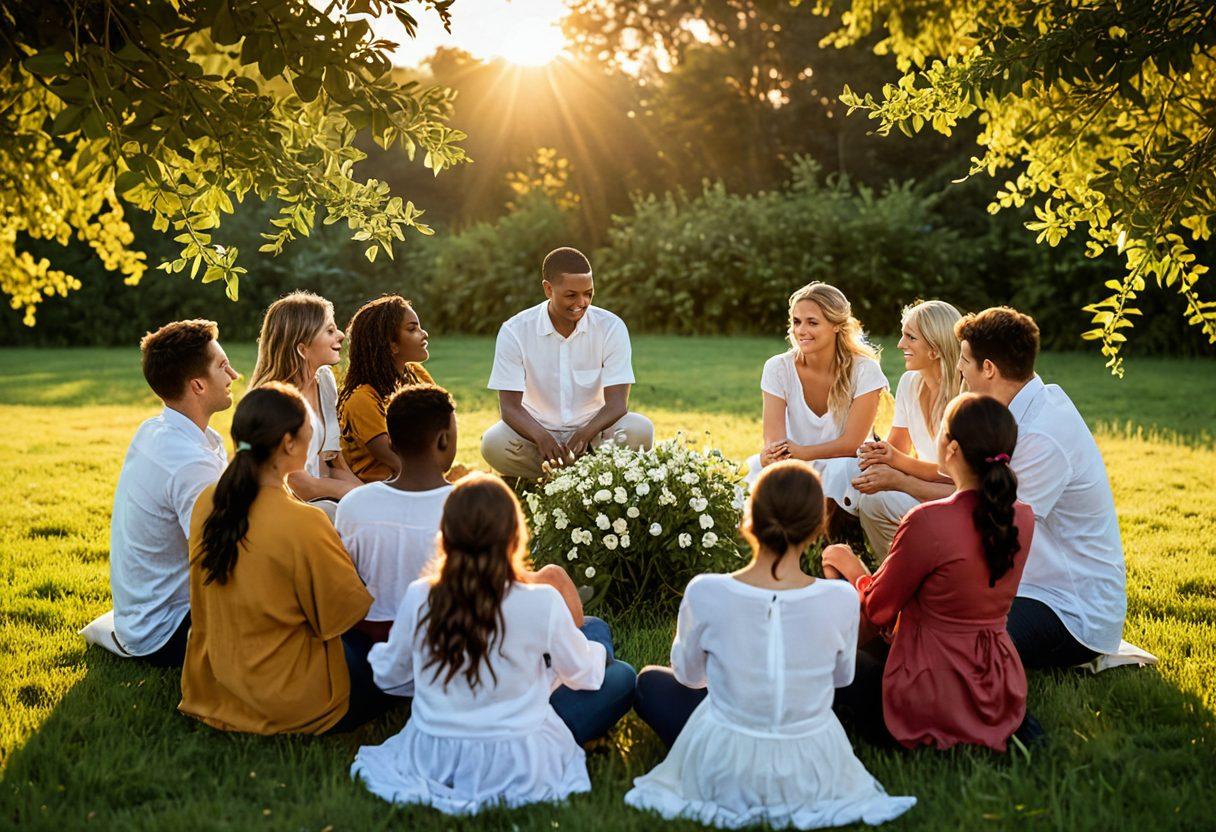Navigating Grief: Cultivating Emotional Wellbeing in Times of Loss
Grief is a path we all must tread. The sorrow of losing a loved one can feel insurmountable, like a shadow looming over our lives. Yet, in the depths of mourning, there lies an opportunity for healing—if wecan embrace vulnerability. In a world that often equates emotional strength with stoicism, it can be surprisingly difficult to allow oneself to feel sadness. But it is in that fertile ground of emotional wellness that we cultivate true strength, fostering stronger interpersonal relationships and nurturing our own emotional intelligence. Are you ready to turn your heartache into a journey of self-discovery?
Embracing vulnerability means acknowledging our emotions rather than hiding from them. It is about facing our grief head-on, letting all those feelings wash over us without the fear of drowning. Whether dealing with the sudden loss of a soulmate or mourning the gradual fading of a long-term relationship, understanding your attachment style can offer guidance. How do you respond to loss? Do you hold on tightly to the fabric of your memories, or do you find it easier to detach? Discovering your approach to grief might just be the first step in enhancing your psychological health and committing to the painful yet necessary path of emotional healing.
Sadness management is not very different from nurturing a garden. You must allow each plant—each emotion—to grow, knowing that some may wilt while others thrive. Consider this: what if feeling pain was not a sign of weakness, but a testament to the depth of our affection and loyalty to those we’ve lost? Remember this, as Brene Brown once said, 'Vulnerability is the birthplace of innovation, creativity, and change.' In the context of grief, vulnerability can be the fertile soil from which emotional wellbeing sprouts, allowing room for joy intermingled with sorrow.
When you embrace vulnerability, you open yourself up to compassion—from others and from yourself. Seek emotional support during these heavy times; engage in relationships advice from friends, family, or from professionals. It's perfectly okay to admit that you are struggling with feelings of loss, heartache, and pain. This honesty not only fosters deeper connections with others but also cultivates a loving relationship with yourself. As you weave through the landscape of grief, allowing in the warmth of self-love and emotional healing, you'll find that the very act of sharing your experience can liberate you in unexpected ways.
Navigating grief is a journey that requires unwavering commitment to oneself. Remember, while grief might feel like a solitary journey, we are all interconnected through our shared human experiences. By allowing ourselves to be vulnerable, we deepen our connection not only to those we mourn but also to ourselves. With every tear shed, every story shared, we reclaim bits of our joy and resilience. Isn't it time to embrace your grief, to let yourself feel and heal? The journey might be difficult, but it is also rich with lessons that can lead us toward a more profound understanding of love, life, and ultimately, emotional wellbeing.
Strengthening Relationships: How Love and Loyalty Aid in Mourning
Grief is a profound experience often marked by sorrow and heartache, weaving itself into the fabric of our relationships. When we lose someone we love, it can feel as though the very ground beneath our feet has shifted. Suddenly, the world seems laden with sadness, and our emotional intelligence is tested like never before. In these moments, what we truly need is not just solitude, but connection—a collective strength that emerges from love and loyalty. So how can these qualities help us navigate the choppy waters of mourning, ultimately enhancing our emotional wellbeing?
Imagine a time when you faced a loss so significant that you felt paralyzed by it. Maybe it was losing a beloved family member or parting ways with a soulmate. In the face of such pain, commitment and loyalty from those around us become crucial lifelines. When friends and family offer emotional support, it strengthens our interpersonal relationships, reminding us that we are not alone in our grief. As we lean into these connections, we not only honor our attachments to those we’ve lost but also cultivate a robust network of compassion that counteracts our sadness management efforts.
“The best way to heal is not in isolation, but in the embrace of those we hold dear.” This adage speaks volumes about the emotional healing process. Our loved ones embody a form of loyalty and affection that allows us to feel seen and understood as we navigate the complexities of grief. Sharing our stories and memories with them can transform our mourning into a way to celebrate lives lived while acknowledging our loss—a beautiful dance of vulnerability and resilience. With each shared tear and laugh, we bond more deeply, enhancing our psychological health and nurturing those still-personal connections.
However, it’s essential to realize that the act of grieving is deeply personal, and everyone processes their loss differently. For some, self-love becomes paramount, while others may find power in collective mourning rituals. Recognizing our unique attachment styles helps us understand our own emotional needs during this challenging time. We may find comfort in rituals or conversations that allow us to express our feelings freely. So, next time you face a friend or family member grappling with grief, consider how your relationship advice can provide a source of comfort—a gentle reminder of loyalty that can help lift them from their sorrow.
In building these bridges of emotional wellbeing, we must also be prepared to embrace our own grief processes. Remember, we cannot pour from an empty cup. Take time to practice self-love and acknowledge your feelings. After all, heartache is a part of the human experience and fosters our emotional intelligence. It encourages us to grow—not just for ourselves, but for those we love. So, let's commit to nurturing our relationships even in the face of loss, allowing the bonds of love to guide us through the stormy seas of grief while revealing the extraordinary strength that comes from loyalty.
From Sorrow to Self-Love: Navigating the Journey of Loss with Compassion
Loss is one of life's most profound experiences, and the journey through grief can feel overwhelming and isolating. Each of us has our own unique way of navigating sorrow, and it's crucial to recognize that feeling pain is a testament to our capacity for love and attachment. As we mourn, we remember the commitment and loyalty shared with those we've lost, creating a bittersweet tapestry of memories that contribute to our emotional wellbeing. But how do we transition from this heavy sorrow to a place of self-love and compassion?
Imagine grief as a river—sometimes it flows gently, and other times it roars with ferocity. This journey of loss is not just about enduring pain; it's also about fostering emotional intelligence. Understanding our feelings deeply, including heartache and sadness management, can empower us. In fact, acknowledging vulnerability allows us to embrace the full spectrum of our emotions, facilitating the path towards healing. When was the last time you allowed yourself to feel fully and express those feelings without shame?
As we navigate this sometimes treacherous terrain, it's important to seek out relationships advice. Nurturing our interpersonal relationships can serve as a lifeline during the difficult times of grief. As we connect with loved ones, we cultivate an environment of emotional support that encourages conversation about our emotions. This interaction helps us not only process our grief but also reinforces our sense of attachment to the living—be it friends, family, or even pets. Who in your life brings you that sense of comfort and belonging?
Our experiences of loss can often challenge existing dynamics in our relationships, especially romantic love. The bond shared with our soulmates can deepen through shared mourning, or it can shift under the weight of grief. Understanding different attachment styles in times of heartache is crucial, as it influences how we approach one another while managing our sadness. By maintaining openness and vulnerability in these conversations, we can forge even stronger connections and foster an environment ripe for emotional healing.
In the end, the road to self-love post-loss is paved with compassion, both for ourselves and those who share in our grief. Remember, it's okay to grieve for extended periods; there’s no timeline for mourning. As you work through this emotional healing, allow yourself the space to honor your feelings and gifts of love. Pain is part of the human experience, yet rising from it strengthens our mental wellness. How will you choose to navigate this profound journey of loss towards self-acceptance and love?


